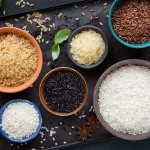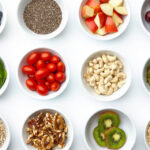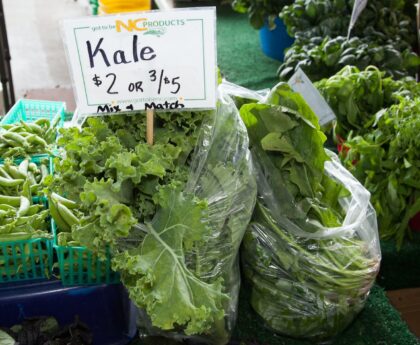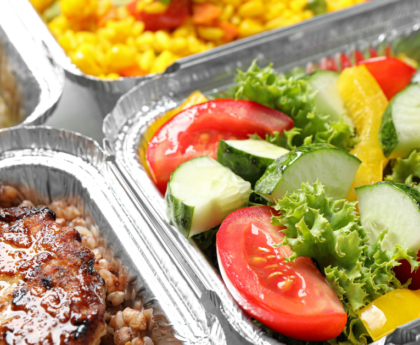Gout is a form of arthritis characterized by intense pain, swelling, and inflammation in the joints, most commonly affecting the big toe. It occurs due to the buildup of uric acid crystals in the joints, causing sudden and severe flare-ups. While medication and lifestyle changes play a vital role in managing gout, dietary modifications can significantly impact the frequency and severity of flare-ups. In this comprehensive guide, we will explore what foods are good for gout flare up to alleviate gout symptoms and prevent future issues.
Understanding Gout and Dietary Triggers:
Gout is primarily triggered by high levels of uric acid in the blood. Uric acid is a byproduct of purine metabolism, a compound found in certain foods. When uric acid levels become elevated, it can lead to the formation of urate crystals in the joints, triggering painful gout attacks. By identifying and avoiding foods that are high in purines, individuals with gout can effectively manage their condition. Here are some key dietary considerations for gout management:
- Low-Purine Foods: Choosing foods that are low in purines helps reduce the production of uric acid, minimizing the risk of gout flare-ups. Incorporating a variety of low-purine foods into your diet forms the foundation of an effective gout management plan.
- Hydration: Staying adequately hydrated is essential for gout management. Drinking plenty of water helps dilute uric acid and promotes its excretion through urine. Aim for at least 8-10 glasses of water per day and hydrate consistently throughout the day.
- Weight Management: Maintaining a healthy weight is crucial for gout management. Excess weight puts additional stress on the joints, increasing the likelihood of gout flare-ups. A balanced diet combined with regular physical activity can support weight loss and improve gout symptoms.
Now, let’s explore what foods are good for gout flare ups:
- Low-Fat Dairy Products: Low-fat dairy products, such as milk, yogurt, and cheese, have been shown to reduce the risk of gout flare-ups. These foods are rich in protein but low in purines, making them a valuable addition to a gout-friendly diet. Additionally, dairy products contain lactic acid, which may help excrete uric acid from the body.
- Cherries: Cherries, particularly tart cherries or cherry juice, have been associated with a reduced risk of gout attacks. They possess anti-inflammatory properties and may help lower uric acid levels in the blood. Incorporating cherries into your diet or consuming cherry juice regularly can help alleviate gout symptoms.
- Vegetables: Non-starchy vegetables, such as leafy greens, broccoli, cauliflower, peppers, and asparagus, are excellent choices for individuals with gout. These vegetables are low in purines and high in essential nutrients and fiber, making them ideal for gout management. Aim to include a variety of colorful vegetables in your meals to maximize their health benefits.
- Berries: Berries, including strawberries, blueberries, and raspberries, are rich in antioxidants and have anti-inflammatory properties. They can help reduce inflammation associated with gout and provide beneficial compounds that support overall health. Enjoy a handful of berries as a snack or incorporate them into smoothies, salads, or oatmeal.
- Whole Grains: Whole grains like oats, quinoa, brown rice, and whole wheat products are excellent alternatives to refined grains for individuals with gout. They are low in purines and high in fiber, which aids in maintaining a healthy weight and promoting overall well-being. Replace refined grains with whole grain options for a gout-friendly diet.
- Omega-3 Fatty Acids: Foods rich in omega-3 fatty acids, such as fatty fish (salmon, mackerel, sardines), flaxseeds, chia seeds, and walnuts, have anti-inflammatory properties that can help manage gout symptoms. Including these foods in your diet may help reduce inflammation and lower the risk of gout flare-ups.
- Herbal Teas: Certain herbal teas, such as nettle tea and ginger tea, have been traditionally used to alleviate gout symptoms. Nettle tea may help with inflammation reduction, while ginger tea possesses anti-inflammatory properties. Enjoying these teas as part of your daily routine may provide relief and support gout management.
It’s important to note that individual responses to specific foods may vary. Some people with gout may find that certain foods trigger flare-ups, even if they are considered low-purine. It is essential to pay attention to your body and track your personal triggers to develop a personalized gout management plan.
Managing gout flare-ups and preventing future attacks involves making smart dietary choices. By incorporating low-purine foods, staying hydrated, and maintaining a healthy weight, individuals with gout can effectively manage their condition. Including low-fat dairy products, cherries, vegetables, berries, whole grains, omega-3-rich foods, and herbal teas in your diet can provide relief from gout symptoms and support long-term gout management. Remember to work closely with your healthcare provider or a registered dietitian to develop a personalized plan that meets your specific needs and helps you achieve optimal gout management and overall well-being.





